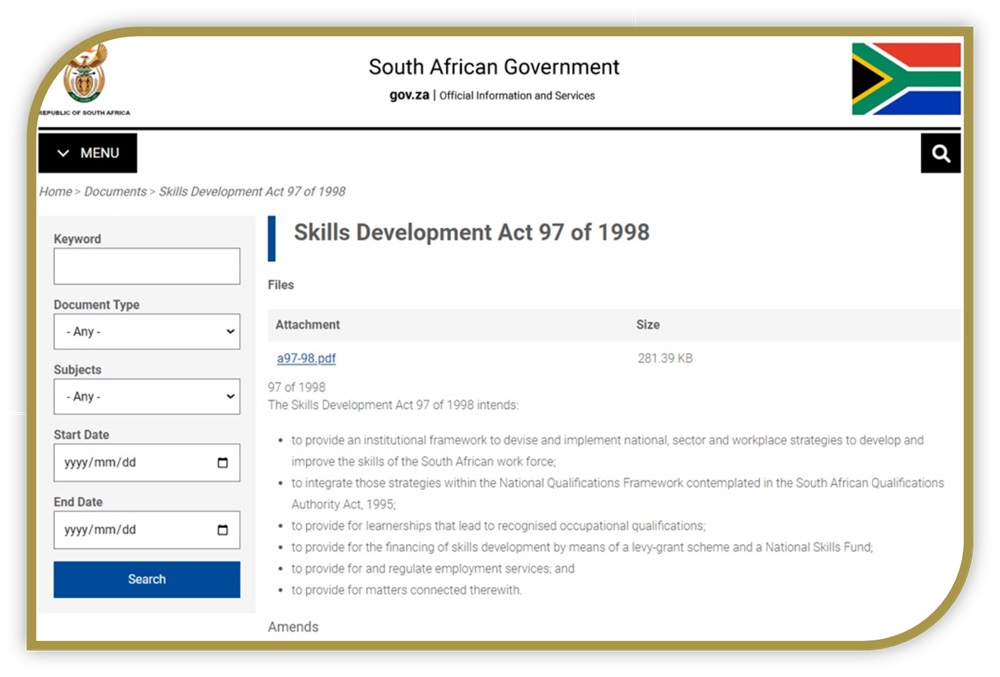Understanding Skills Development Facilitators
A SDF (Skills Development Facilitator) play a pivotal role in driving workforce development and compliance within South African organizations.
Working within the legal framework and regulatory standards set by the National Skills Development Strategy is paramount for SDFs. This article outlines the essential legal requirements and best practices SDFs must follow to effectively facilitate skills development in the workplace.
1. Mastery of the Skills Development Act: Familiarize yourself with the Skills Development Act (No. 97 of 1998). SDFs must have a deep understanding of this act, which lays the foundation for skills development and training initiatives across South Africa.
2. National Qualifications Framework (NQF) Alignment: It’s crucial for SDFs to align training programs with the NQF. Knowledge of how different qualifications fit within the NQF ensures that programs meet national standards and fulfill organizational needs.
3. Sector Education and Training Authority (SETA) Registration: SDFs must register with the appropriate SETA. Each industry sector is governed by a specific SETA, which facilitates and oversees skills development efforts.


4. Workplace Skills Plan (WSP) and Annual Training Report (ATR): A key responsibility of an SDF is the preparation and submission of the WSP and ATR to their relevant SETA. These documents are vital for planning and reporting on training initiatives.
5. Skills Development Funding and Grants: Understanding the procedures for securing funding and grants from SETAs is essential. SDFs should be adept at navigating the grant application process to secure funding for skills development programs.
6. Compliance with Quality Management Systems (QMS): For training providers, ensuring that programs meet SETA and SAQA quality standards is critical. SDFs play a significant role in maintaining these standards.
7. Effective Data Management: Efficient management of training records and reporting on skills development activities are fundamental duties of an SDF. Accurate data management supports compliance and informs strategic planning.
8. Advisory Expertise: Offering expert guidance on the implementation of skills development strategies is a core function of SDFs. Identifying skills gaps and recommending suitable training interventions are part of this advisory role.


9. Continuous Professional Development (CPD): SDFs should commit to ongoing learning to stay updated on legislative changes, sector-specific requirements, and emerging best practices in skills development.
10. Ethical Standards: Adhering to high ethical standards ensures that skills development initiatives are conducted with integrity, fairness, and transparency.
Skills Development Facilitators can significantly contribute to the enhancement of workforce skills, compliance with national standards, and the overall success of organizational training efforts.
